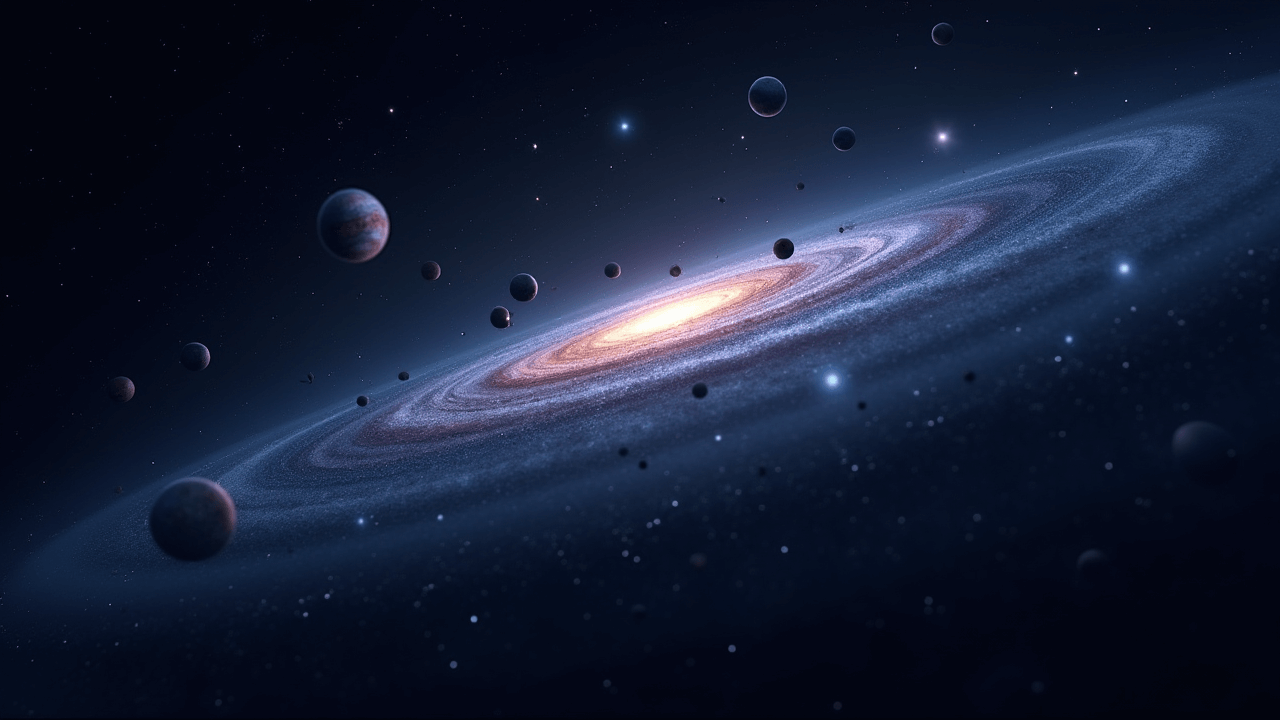How Does Space Expand? Let’s Dive Into the Mystery
Hey everyone, and welcome back. You know, sometimes the simplest questions can be the most mind-bending, and that’s exactly what we’re tackling today. We’re talking about how space itself can expand. It’s a question that has puzzled people for centuries.
At first, you might think, “Space? Isn’t that just emptiness? How can nothing expand?” It’s a great question. To help explain, we’ll use a few analogies to make this abstract concept a bit easier to picture.
Is Space Like a Balloon? Understanding the Balloon Analogy
One common analogy is to think of space like the surface of a balloon. Imagine dots scattered across that balloon. As you inflate it, the dots spread apart, even though they aren’t moving on their own. It’s the surface that’s expanding, stretching the space between them.
Now, this is similar to how galaxies move apart. It’s not that galaxies are zooming through space like racecars. Instead, the space between them is stretching, just like our balloon. So, while it may look like galaxies are moving, it’s actually space itself that’s expanding.
Why Isn’t My Desk Moving Away from the Wall?
A funny question that came up in a discussion was, “If space is expanding, does that mean my desk is moving away from the wall?” It’s a clever thought! But here’s the thing: while space is expanding everywhere, the effect is tiny on small scales, like in your room. That’s because gravity, and other forces, are much stronger on local scales. Gravity is keeping your desk right where it is, just like it holds our planet, solar system, and galaxy together.
Redshift: The Clue to Space Expanding
Since we can’t see space stretching with the naked eye, how do we know it’s expanding? This is where redshift comes in. Light from distant galaxies appears redder than it should, and this happens because as space expands, it stretches the light waves traveling through it.
This is similar to the Doppler effect, where sound waves change pitch depending on whether an object is moving toward or away from you. But instead of sound, with redshift, we’re seeing light waves stretch, making distant galaxies look redder. This tells us those galaxies are moving away, and thus, space is expanding.
Can Galaxies Move Faster Than Light?
Now, here’s where things get wild. Some galaxies appear to be moving away from us faster than the speed of light! Wait, doesn’t that break a fundamental rule of physics? Well, not exactly. Einstein’s speed limit applies to objects moving through space, but it doesn’t apply to the expansion of space itself. Imagine a highway where the road stretches, making the distance between cars greater, even if the cars themselves aren’t speeding. Space, as it expands, isn’t limited by the speed of light.
The Role of Dark Energy
To understand why space expands, we need to introduce a mysterious force called dark energy. It’s like an invisible force pushing the universe apart. We can’t see it directly, but we observe its effects. Imagine trying to figure out how a car works when you can only see the outside moving, without knowing what’s going on under the hood. That’s what we’re dealing with when it comes to dark energy.
Is Dark Energy Constant?
One of the strangest things about dark energy is that it seems to have a constant density. You’d expect that as space expands, dark energy would get spread thinner. But that’s not what happens. Instead, it keeps pushing space apart, and as more space forms, dark energy somehow remains at the same density. It’s almost as if the universe is creating more dark energy as it grows.
Will the Universe Keep Expanding Forever?
This raises the question: if dark energy keeps pushing everything apart, does that mean the universe will keep expanding forever? Current thinking suggests yes. It’s like hitting the gas pedal on a car that’s already moving at top speed—it just keeps accelerating. One possible outcome is a scenario called heat death, where everything slowly fades out as the universe reaches equilibrium, much like a cup of coffee cooling down to room temperature.
Could the Universe Ever Reverse and Contract?
But there’s another possibility that’s equally mind-bending: what if the expansion could reverse? This is known as the Big Crunch. Imagine our balloon suddenly deflating, with all the dots rushing back toward each other. Some scientists even theorize that this could lead to another Big Bang, creating a cyclical universe that expands and contracts over and over again.
FAQ Section
What does it mean when we say space is expanding?
Space expanding means that the distance between objects in the universe is increasing, not because they’re moving through space, but because space itself is stretching.
Why don’t we notice space expanding around us?
The expansion of space is happening everywhere, but on small scales like our everyday environment, gravity is much stronger and keeps objects like your desk or planets in place.
What is redshift and how does it prove space is expanding?
Redshift occurs when light waves are stretched as they travel through expanding space, making distant objects appear redder. This is evidence that space itself is stretching.
Can galaxies move faster than the speed of light?
Galaxies aren’t moving through space faster than light. Rather, the space between them is expanding, which can make them appear to move faster than light without breaking physical laws.
What is dark energy?
Dark energy is a mysterious force that seems to be pushing the universe apart, causing the expansion of space to accelerate. We don’t yet fully understand what it is, but we can observe its effects.
Your Hosts

Alex & Maria
Join Alex Thompson and Maria Davis as they navigate the fascinating world of knowledge. With their combined expertise and passion for learning, they simplify the complex and make every episode a journey worth taking.

